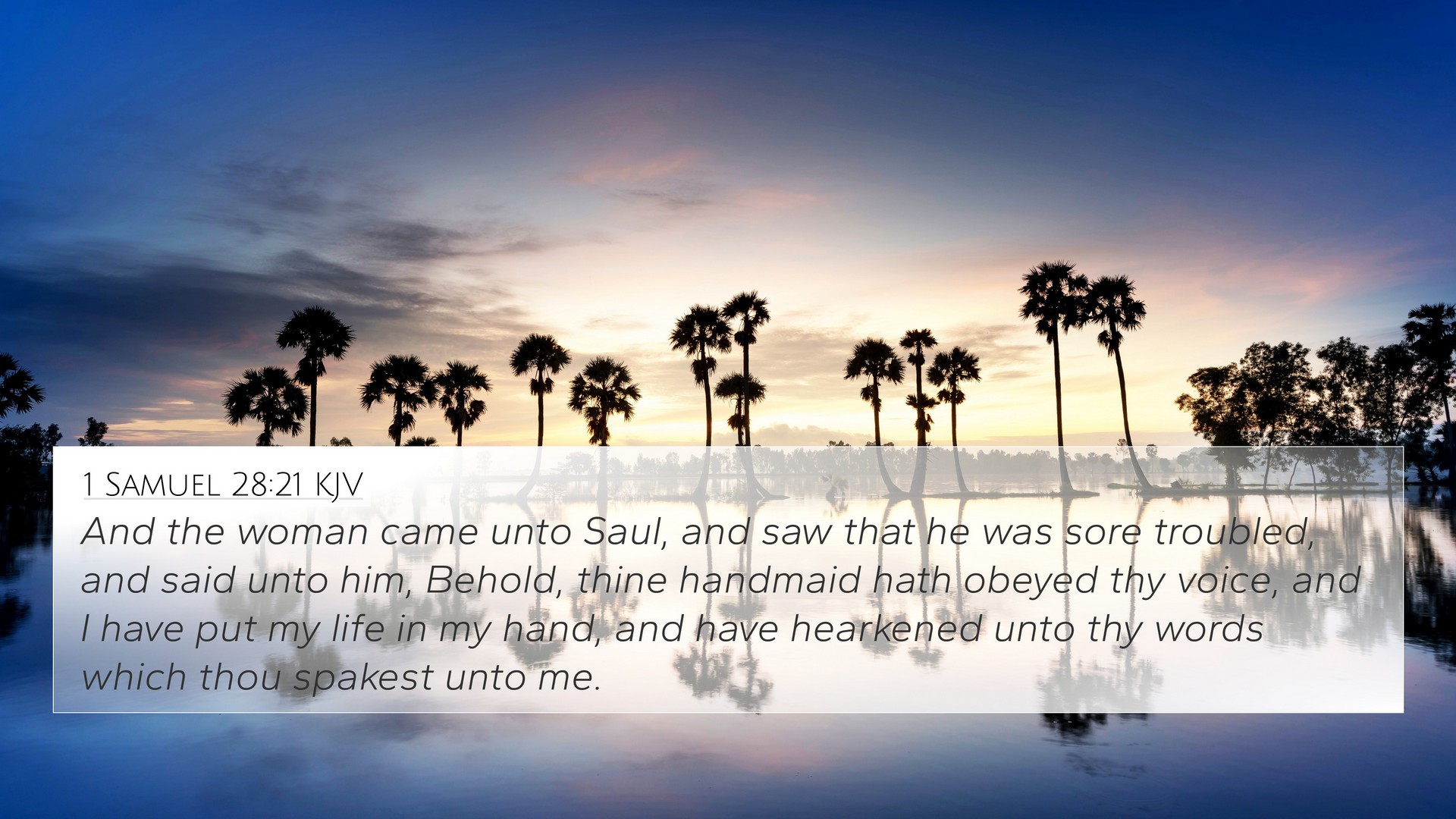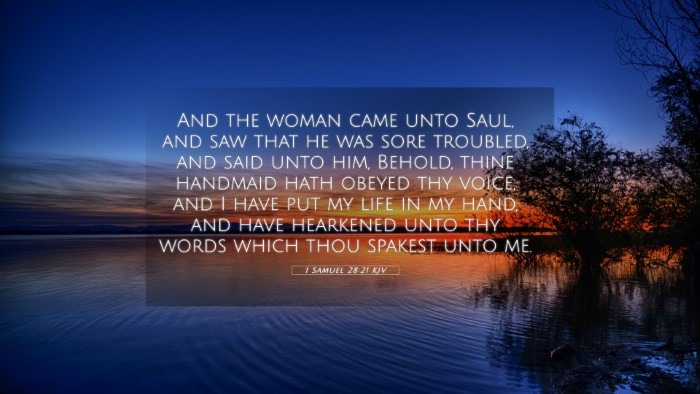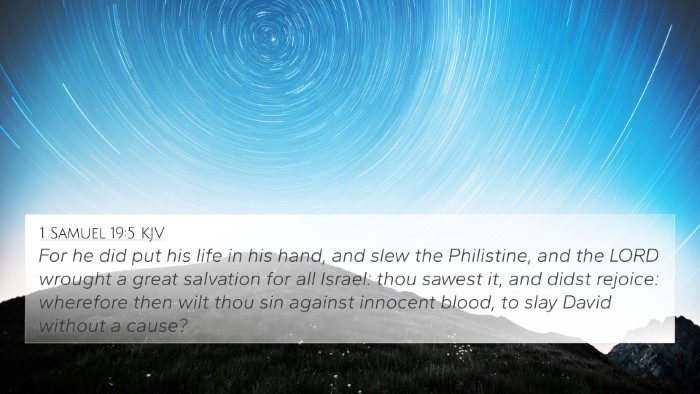Understanding 1 Samuel 28:21
This verse, situated within the narrative of Saul’s dire circumstances, illustrates the complexities of seeking guidance from God when one has strayed from the path of righteousness. The context involves Saul consulting a medium to summon the prophet Samuel’s spirit, revealing both his desperation and the spiritual implications of his actions.
Verse Context
1 Samuel 28:21 states, “And the woman came unto Saul, and when she saw that he was sore troubled, she said unto him, Behold, thy handmaid hath obeyed thy voice, and I have put my life in my hand, and have hearkened unto thy words which thou spakest unto me.” This moment emphasizes the taboo and fear surrounding necromancy while hinting at the deep moral conflict Saul faces.
Commentary Insights
The insights from various commentators reveal the layered meanings behind this verse:
-
Matthew Henry:
Henry emphasizes the gravity of Saul’s situation. He portrays Saul as troubled and desperate, signaling that he has ventured far from reliance on God. The act of seeking a medium shows a profound spiritual decline, representing humans' often misguided attempts to grasp divine guidance through sinful means.
-
Albert Barnes:
Barnes provides a historical context, noting that consulting mediums was strictly forbidden in Israelite law. He underlines the contrast between Saul’s previous devoutness and his current state of despair, pointing out that seeking help from the dead was a misinterpretation of seeking God’s counsel.
-
Adam Clarke:
Clarke delves into the character of the medium, her fear, and Saul's vulnerability. He mentions that the medium may have recognized Saul's troubled heart, thus providing insight into human emotions and the lengths to which one may go when feeling lost and abandoned by God.
Thematic Connections
The themes of desperation, disobedience, and seeking divine guidance run deep in this passage. As we consider its implications, we should examine it alongside other significant scripture passages that bear similarity or contrast:
- Deuteronomy 18:10-12: Offers insight into the forbidding of sorcery and consulting the dead.
- 1 Chronicles 10:13-14: Discusses Saul’s death, highlighting the consequences of his unfaithfulness to God.
- Isaiah 8:19: Questions turning to the dead for guidance, emphasizing reliance on the living God.
- Exodus 22:18: Addresses witchcraft, reinforcing Biblical prohibitions against such practices.
- Jeremiah 29:13: Encourages seeking God sincerely, contrasting Saul's actions.
- Galatians 6:7: Discusses reaping what one sows, which relates to Saul's covenant with God and subsequent actions.
- 1 Samuel 15:23: Reminds us that rebellion is as the sin of witchcraft, paralleling Saul's yearning for guidance through forbidden means.
Cross-Referencing Biblical Texts
The act of cross-referencing allows us to fully appreciate the gravity and implications of Saul's choices. Through the connections between these verses, readers gain insight into the consequences of disobedience, the importance of seeking God’s guidance properly, and the repercussions of engaging with forbidden practices.
For those studying this verse, tools such as a Bible concordance or a Bible cross-reference guide can enhance the understanding of how various texts interact and relate:
- Utilizing a Bible concordance helps identify key terms that can lead to cross-referenced themes.
- Engaging with a Bible cross-reference guide can reveal deeper connections, making Bible study more comprehensive.
- The Bible reference resources facilitate exploration of links between Old and New Testament teachings.
Conclusion
In light of 1 Samuel 28:21, it becomes evident that what may appear as a simple act of desperation unveils complex spiritual truths. By analyzing this verse through the lens of other scriptures, we can form a richer understanding of God’s character, the significance of adherence to His commands, and the depth of our relationship with Him.





